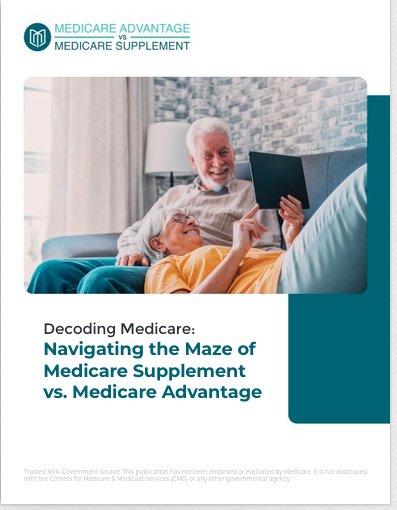Key Takeaways
-
Medicare Part A covers inpatient hospital care, but there are specific limitations, costs, and rules you should understand before you need to use it.
-
Knowing what is and isn’t included under Part A can help you avoid unexpected out-of-pocket costs during a hospital stay.
Understanding Medicare Part A in 2025
Medicare Part A is often referred to as hospital insurance. In 2025, it remains a core part of Original Medicare and is available to most people at age 65, or earlier for those with certain disabilities or health conditions. While it provides critical coverage for inpatient hospital care, it does not cover all medical costs you may face in a hospital setting.
If you or a loved one expects to use hospital services, it’s crucial to understand how Medicare Part A works in 2025. This includes knowing your eligibility, what services are covered, the duration of coverage, and the out-of-pocket costs you could incur.
Who Is Eligible for Medicare Part A?
You qualify for Medicare Part A in 2025 if:
-
You are age 65 or older and eligible for Social Security or Railroad Retirement Board benefits.
-
You’re under 65 but have received disability benefits for 24 months.
-
You have end-stage renal disease (ESRD) or ALS (Lou Gehrig’s disease).
In most cases, you won’t pay a monthly premium for Part A if you or your spouse paid Medicare taxes for at least 40 quarters (10 years). If you worked fewer quarters, a monthly premium applies.
What Hospital Services Are Covered?
Medicare Part A covers a wide range of services when you’re admitted to a hospital or similar inpatient facility. Here’s what you can expect Part A to pay for:
-
Inpatient hospital care (including semi-private rooms, meals, general nursing, and drugs as part of your inpatient treatment)
-
Skilled nursing facility care (following a qualifying hospital stay of at least 3 days)
-
Home health care (under limited circumstances)
-
Hospice care (for individuals with a terminal illness)
-
Mental health inpatient care (in a general or psychiatric hospital, subject to lifetime limits)
Keep in mind: Part A does not cover private-duty nursing, the cost of a private room (unless medically necessary), or personal care items like razors or slippers.
How Long Does Medicare Part A Cover Hospital Stays?
Medicare uses benefit periods to determine coverage. A benefit period begins the day you’re admitted to a hospital and ends when you’ve been out of the hospital or skilled nursing facility for 60 consecutive days.
Here’s how long Medicare Part A covers your stay:
-
Days 1–60: You pay the inpatient deductible ($1,676 in 2025); Medicare covers the rest.
-
Days 61–90: You pay a daily coinsurance ($419 per day); Medicare covers the rest.
-
Days 91–150: You use your 60 lifetime reserve days, with a daily coinsurance of $838.
-
After 150 days: You’re responsible for all costs.
Each new benefit period resets these limits, but lifetime reserve days are not replenished.
What About Skilled Nursing Facility (SNF) Care?
After a hospital stay of at least 3 days, you may qualify for coverage in a skilled nursing facility.
Medicare Part A covers:
-
Days 1–20: Full cost of care.
-
Days 21–100: You pay $209.50 per day in 2025.
-
After 100 days: You pay the full cost.
To qualify, your doctor must certify that you need daily skilled care, and you must enter the SNF within a short time (typically 30 days) after your hospital stay.
Costs You Can Expect to Pay Under Part A
Even though many people think of Medicare as free, hospital coverage under Part A does involve cost-sharing.
Key 2025 Out-of-Pocket Costs for Part A
-
Inpatient hospital deductible: $1,676 per benefit period
-
Coinsurance for days 61–90: $419 per day
-
Coinsurance for lifetime reserve days: $838 per day
-
SNF coinsurance (days 21–100): $209.50 per day
-
Monthly premium (if applicable): $284 if you have 30-39 quarters of Medicare-covered work; $518 if fewer than 30 quarters
Also note: These costs apply only to services Part A covers. You’re still responsible for anything not included under Medicare rules.
Limitations You Should Be Aware Of
Medicare Part A doesn’t cover everything. Here are some common limitations that catch people by surprise:
-
Outpatient care: If you receive outpatient observation care in a hospital, it’s covered by Part B, not Part A.
-
Emergency room visits: Unless admitted, ER visits fall under Part B.
-
Custodial care: Long-term stays in nursing homes for assistance with daily activities are not covered.
-
Private rooms or non-medical extras: Unless deemed medically necessary, these are not reimbursed.
To avoid unexpected bills, always confirm whether your hospital stay is classified as inpatient or outpatient.
How Does Part A Work With Other Coverage?
Many people have other types of coverage in addition to Part A, including:
-
Medicare Part B: Covers outpatient services, doctors’ visits, and preventive care.
-
Medicare Advantage Plans (Part C): These replace Original Medicare and may include hospital coverage with different cost structures.
-
Medigap (Medicare Supplement Insurance): Helps pay for deductibles, coinsurance, and other costs not covered by Part A.
-
Employer or retiree health plans: May provide secondary coverage for hospital stays.
If you have more than one form of insurance, coordination of benefits determines which plan pays first.
Planning Ahead to Avoid Issues
Being proactive about your Medicare Part A coverage can help prevent future problems. Here’s how you can prepare:
-
Review your Medicare Summary Notice (MSN): This explains what Medicare paid and what you may owe.
-
Ask questions during hospital intake: Clarify whether your status is inpatient or outpatient.
-
Understand benefit periods: Knowing when one ends and another begins helps you plan for future costs.
-
Evaluate your coverage annually: Open Enrollment runs from October 15 to December 7 each year. It’s a good time to consider other options if your needs change.
Timing Matters: Enrollment Windows and Deadlines
You’re automatically enrolled in Medicare Part A if you’re already receiving Social Security at age 65. Otherwise, you need to sign up during your Initial Enrollment Period (IEP).
Your IEP lasts seven months:
-
Starts three months before your 65th birthday month
-
Includes your birthday month
-
Ends three months after your birthday month
If you miss this window, you can enroll during the General Enrollment Period (January 1 to March 31), but late penalties may apply.
Special Enrollment Periods (SEPs) are also available if you’re still working past 65 and covered by an employer plan.
Knowing When to File an Appeal
Sometimes Medicare may deny a claim or service. You have the right to appeal any coverage decision. This is especially important for:
-
Hospital stays you believe should’ve been covered
-
Services that were denied or only partially covered
-
Disputes over inpatient vs. outpatient status
You must file your appeal within 120 days of receiving your Medicare Summary Notice. The first step is requesting a “Redetermination” from the company that handles Medicare claims.
Why Medicare Part A Still Requires Attention
While Medicare Part A offers significant coverage, it is not all-inclusive. In 2025, rising healthcare costs and changing hospital practices mean you need to stay informed. Even a short hospital stay can result in unexpected bills if you don’t fully understand your benefits.
This is especially true when it comes to observation status, benefit periods, and the use of lifetime reserve days. A little preparation now can save you from major financial stress later.
Preparing for Hospital Care With Confidence
Understanding your Medicare Part A benefits in 2025 is more than just knowing what’s covered. It’s about being ready when care is needed. By taking the time to review your options, confirm your hospital status, and ask questions in advance, you’ll be in a much better position to protect both your health and your wallet.
If you have questions about your hospital coverage or want to explore how other forms of coverage work with Medicare Part A, reach out to a licensed agent listed on this website for professional advice and assistance.










